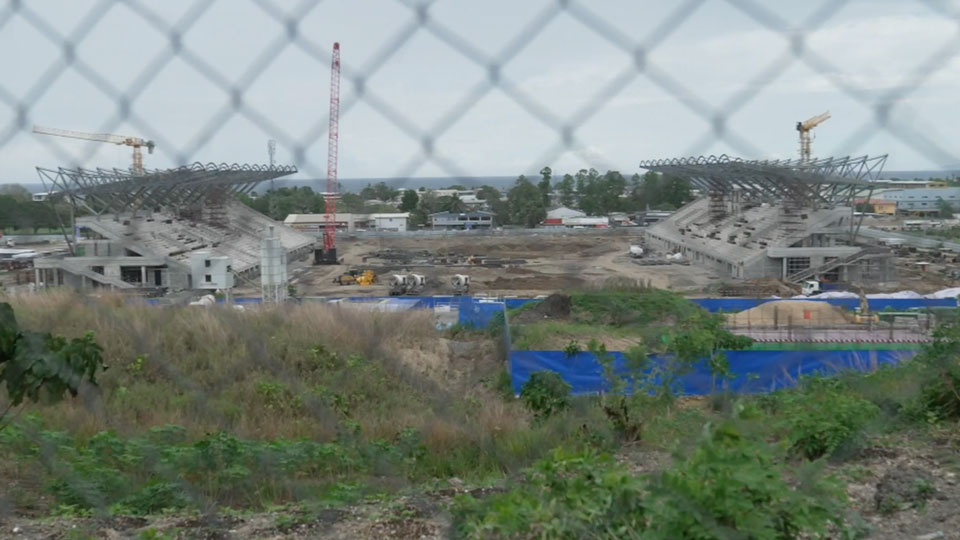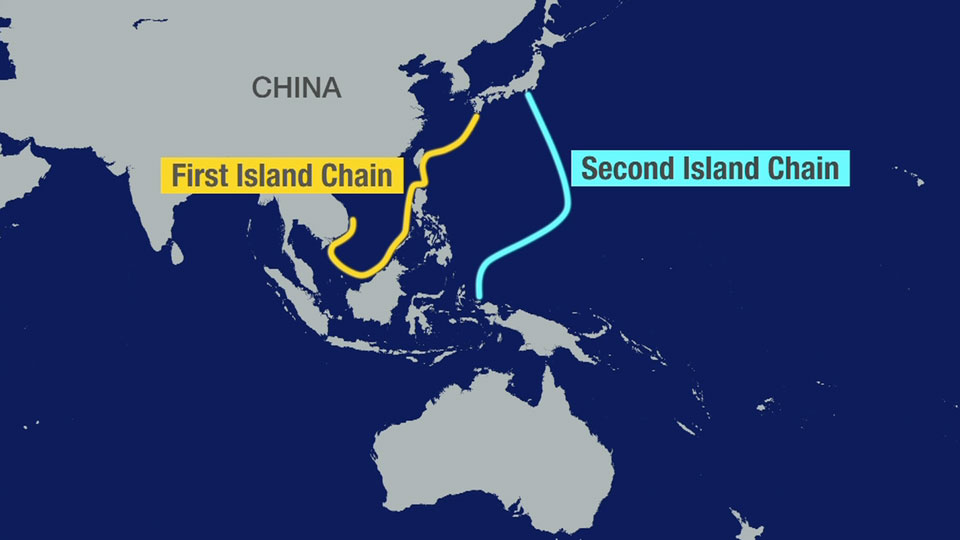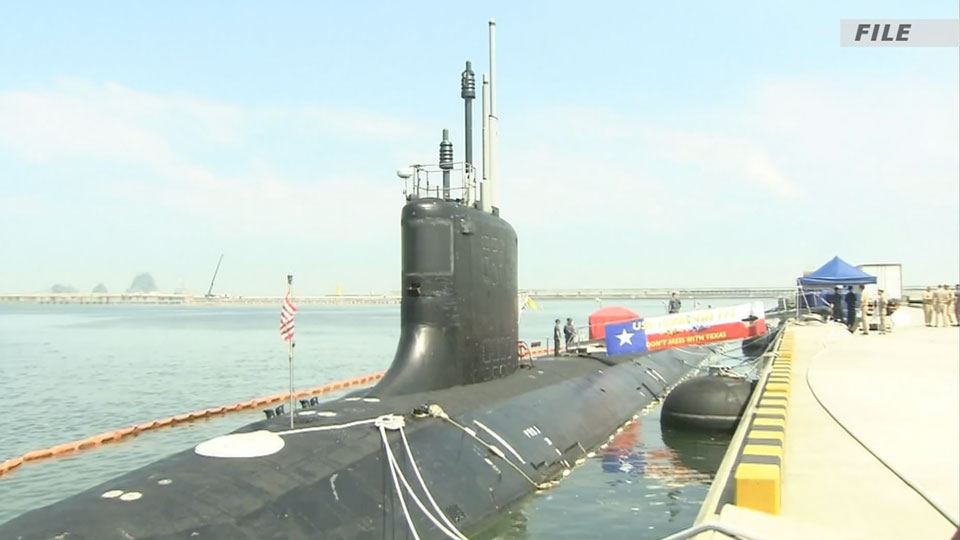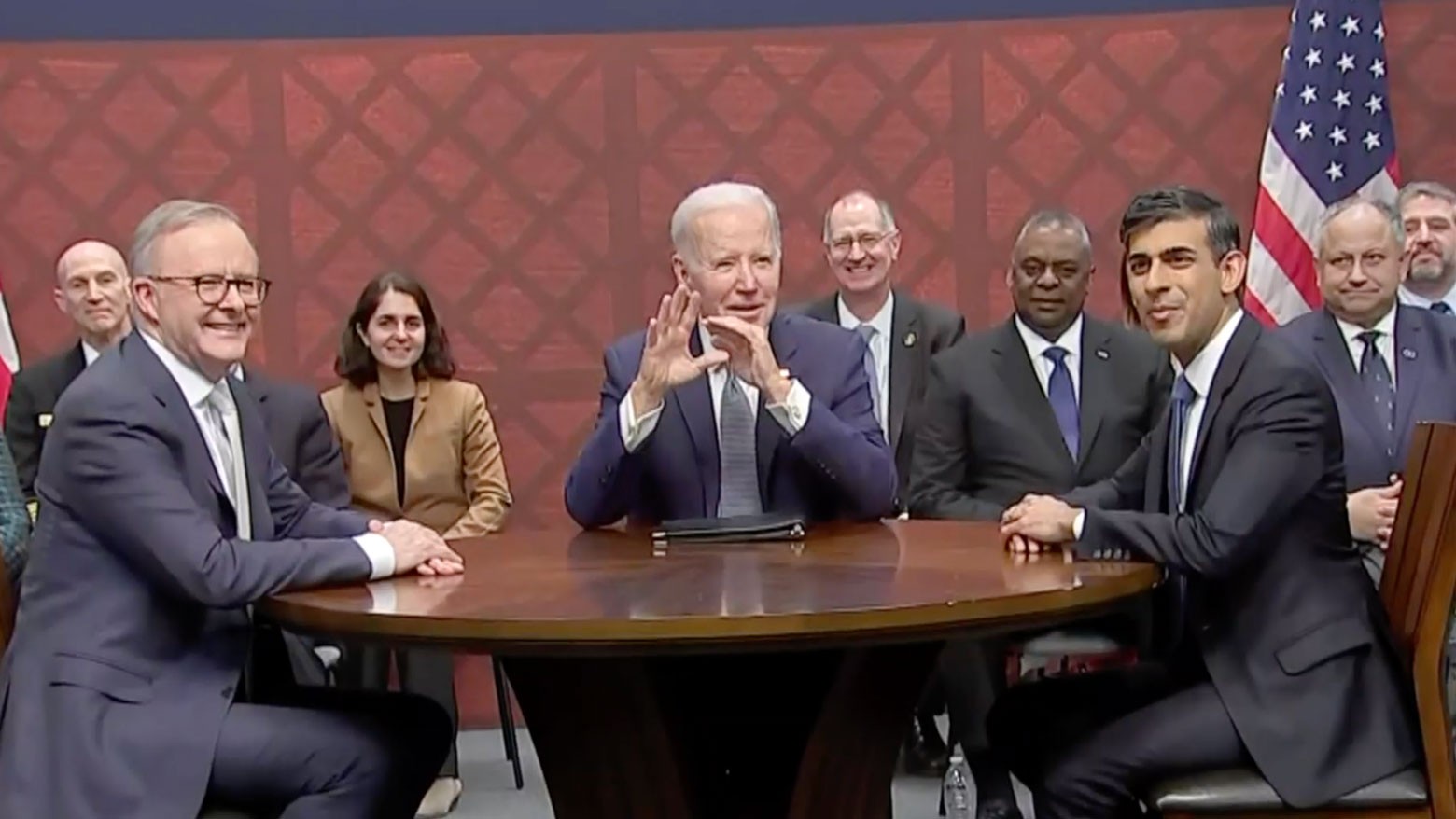At a joint press conference, US President Joe Biden said AUKUS "has one overriding objective: to enhance stability in the Indo-Pacific amid rapidly shifting global dynamics." Those "dynamics" are being led by China.
China's growing influence
The submarine deal is part of a US-led effort to counter China. It comes at a time when Beijing is expanding its influence in the Indo-Pacific region, while also rapidly increasing its naval power.
China has been offering support and investment to Pacific island countries, including the development of roads and port facilities.

The effects are clear. The Solomon Islands and Kiribati cut ties with Taiwan four years ago and established diplomatic relations with China. And last year, the Solomons signed a security agreement with Beijing.
China is taking a similar approach in the Indian Ocean region. It has been supporting efforts in Sri Lanka, Bangladesh, Myanmar, and other countries to build ports and other infrastructure. There are concerns that these facilities may end up being used for military purposes.
Beijing's rapid military buildup
The US and its allies are concerned about China's rapid military buildup. Beijing has developed medium-range ballistic missile types called DF21 and DF26 that can attack aircraft carriers and reach Guam, a US territory.
China has also laid out strategic lines called the First and Second Island Chains in the western Pacific. The aim is to prevent the US from sending naval vessels across the lines.
Beijing is at odds with neighboring countries as it stakes its claim to large swathes of the South China Sea and builds artificial islands there.

A possible invasion of Taiwan is another concern.
Under these circumstances, submarines, which are fast and difficult to detect, are becoming increasingly important. The US saw what China was doing and decided to provide Australia with nuclear-powered submarines.
A sign of the times
Washington's nuclear-powered submarine technology is very advanced and so far it has only shared it with Britain.
The fact that it's now including Australia reflects a strong sense of urgency. One senior official in Washington says the deployment of submarines to Australia will be a "major deterrent in the Indo-Pacific." In other words, a deterrent against China.
The US believes it will be difficult to contain China on its own. Washington is worried that if the existing military balance collapses and China gains the upper hand, the risks facing the region will increase. It wants a sizable deterrent to avoid such a situation.
China has already surpassed the US in terms of medium-range missiles. It has more of them, and the technology is more advanced. It's also ahead in the development of hypersonic weapons that travel at speeds of at least Mach 5 and are difficult to intercept.
AUKUS is developing hypersonic weapons and interception technology of its own.

Britain's role
Britain has been working to strengthen ties with regions other than the EU under its "Global Britain" foreign policy. The Indo-Pacific is a vital part of this strategy, especially from an economic perspective.
In an announcement on March 12, the British government referred to the Indo-Pacific as a "permanent pillar of its international policy". Britain also shares concerns about the challenge China poses to the international order.
Japan, as well as the US, Australia and other countries are expected to further accelerate cooperation to enhance deterrence.

